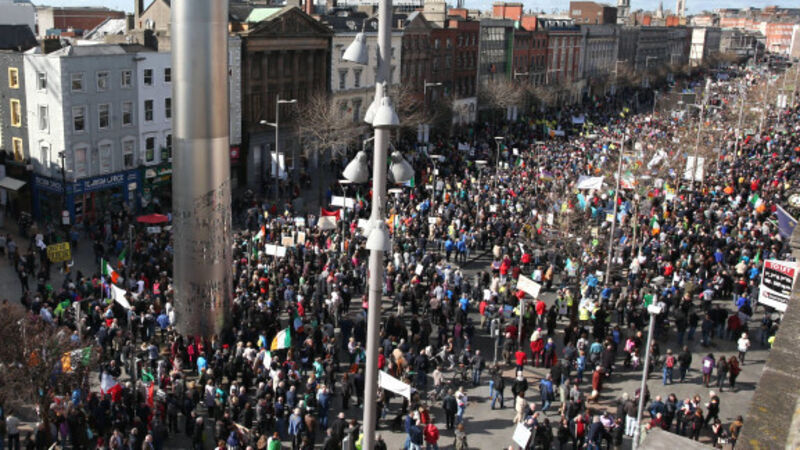Water charges inspired new type of action

The first in-depth survey of the anti-water movement, published today, dispelled the notion that the majority of people taking to the streets to demonstrate against the water charge are so-called “professional protesters”.
Underatken by Rory Hearne of Maynooth University, the survey of more than 2,500 anti-water protestors in December found 54.4% had never protested at all before taking part in the current demonstrations.













